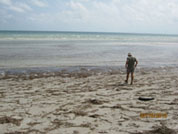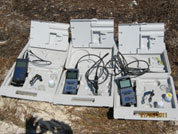STUDY OF THE IMPACT OF POLLUTION ON MARINE BIODIVERSITY
Client : Ministry of Environment
Date : 2012 - 2013
Funding : World Bank
Tunisia has a marine space extending over more than 7 million hectares encompassing important characteristic ecosystems such as Posidonia meadows and coralligenous constructions. This area is subject, as is the case of other marine areas of the Mediterranean, to increased pressure linked to the phenomenon of littoralisation and the development of several activities on the coast and at sea.
The impact of all of these activities is reflected in significant changes both in the course of the coasts, in the quality of the waters, and, correlatively, in the natural populations, both terrestrial and marine. This contributes to the deterioration of the ecological conditions of the Mediterranean and its shores with the appearance of certain worrying phenomena whose impact affects all the countries of the region. The environmental management of these situations requires on the one hand a good knowledge of the causes of degradation, their extent and their distribution in time and space, and on the other hand the establishment of integrated management mechanisms that take account of all activities and concerns of all stakeholders. The natural marine and coastal areas of the Gulf of Gabes display a particular vulnerability in the face of the continuous acceleration of economic and social development actions and the presence of oil infrastructure both on the coast and offshore. Their protection constitutes today for Tunisia one of the main stakes in terms of planning and management of the territory.
This project took place in three stages:
- Phase 1: Collection and synthesis of available data
- Phase 2: Prospecting and sampling campaign
- Phase 3: Action plan for the fight against pollution and minimization of its impact on biodiversity

